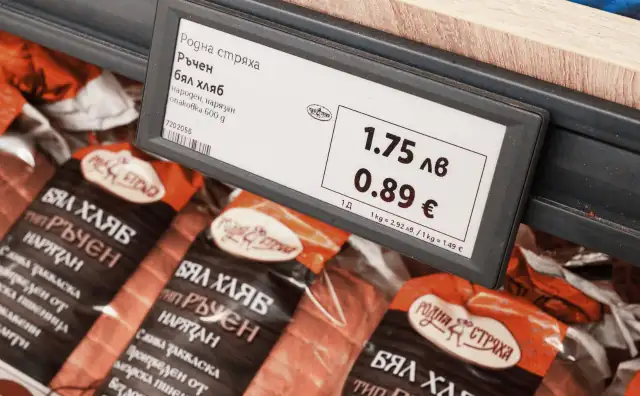
SOFIA, Bulgaria — The political party “Da, Bulgaria” (Yes, Bulgaria) has introduced a new legislative proposal aimed at enhancing transparency in food pricing, following recent revelations of sharp increases in the cost of basic goods.
The draft bill, announced by party co-chair Bozhidar Bozhanov on Wednesday, would mandate large retail chains to publish daily prices of essential consumer items, enabling the public to track fluctuations in real time.
The proposal comes on the heels of comments made by the head of the National Revenue Agency (NRA), Rumen Spetsov, who reported significant price hikes across 14 essential food categories.
According to Spetsov, inspections carried out by the agency revealed increases ranging from 5 to 40 percent over just two weeks. Bozhanov strongly criticized Spetsov’s handling of the situation, accusing him of sowing panic among consumers without providing adequate data or context.
“He just threw some numbers into the air and frightened people,” Bozhanov told reporters in the corridors of parliament. “That’s not how things should be done. The only real safeguard against price hikes is competition.”
The proposed legislation would require major retailers to publicly list the prices of key consumer products each day, a move the party says will empower consumers, foster market competition, and offer a timely alternative to delayed state reporting.
Bozhanov emphasized that the goal is to put vital information directly in the hands of citizens. “If people can see how prices change every day, they’ll be able to make informed choices, and companies will be forced to compete honestly,” he said.
In addition to the legislative push on food pricing, the party weighed in on an unfolding investigation by the European Public Prosecutor’s Office (EPPO) at the Ministry of Agriculture and Food.
Ivaylo Mirchev, another member of “Da, Bulgaria,” welcomed the EPPO’s unannounced inspection, which took place the same day at the ministry’s headquarters in Sofia.
The investigation centers on suspected misuse of European Union funds within the Directorate for Maritime Affairs and Fisheries, a division under the agriculture ministry.
The EPPO has not yet released specific findings, but the ministry confirmed the inquiry is related to suspicions of unlawful conduct by staff in the fisheries unit.
Mirchev applauded the surprise nature of the inspection, calling for similar unannounced checks across all ministries to ensure accountability. “They shouldn’t be notified. That’s the only way to ensure accountability,” he said.
The legislative proposal and the anti-corruption stance on the EPPO probe underscore “Da, Bulgaria’s” continued efforts to position itself as a reform-minded force in Bulgarian politics, especially amid public concerns over inflation, governance, and institutional transparency.
As food prices continue to dominate headlines and household budgets tighten, the party’s move to force real-time disclosures from retailers may intensify debate around the state’s role in economic oversight and consumer protection.
